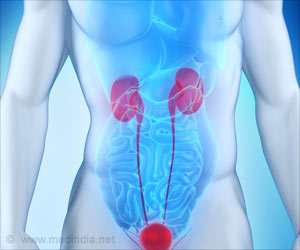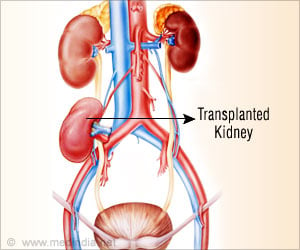Measuring the levels of hormone irisin may aid in accurate diagnosis of PCOS, an endocrine disorder, and help avoid unnecessary treatment in healthy teenagers.
Highlights
- Polycystic ovary syndrome (PCOS), a common endocrine disorder affecting up to 12% of women.
- Symptoms include irregular periods, acne, obesity and excess hair growth.
- Diagnosis of PCOS in teenage girls may pose a problem since symptoms resemble normal pubertal changes.
- Measurement of blood irisin levels may help correctly diagnose PCOS, thereby avoiding unnecessary treatment in normal pubertal girls.
In their study, Greek researchers at Aghia Sophia Children's Hospital in Athens compared the hormones of 23 teenagers suspected to be having PCOS with 17 healthy teenagers of the same age and body mass index (BMI). They discovered that teenage girls with PCOS had significantly higher levels of irisin compared to the control group. Studies have also shown that circulating irisin is a primary predictor of hyperandrogenism (androgen excess), a key finding in PCOS.
"Teenagers who get an early diagnosis of PCOS can sooner start to deal with the physical and psychological symptoms caused by this lifelong condition," said lead researcher Dr. Flora Bacopoulou. "Whether it's through counseling or medication, girls can manage their symptoms and decrease the risk of further complications such as fertility problems, hirsutism (excessive hair growth) and type-2 diabetes".
These findings seem to suggest that irisin could be a marker in making a diagnosis of PCOS.
About PCOS
The characteristic features of PCOS include
- Irregular periods
- Obesity
- Oily skin and acne
- Excess hair growth
- Pelvic pain
- Anxiety
- Depression.
Presently there is no known cure for the condition.
Irisin and Its Physiological Role
In January 2012, Boström and colleagues discovered a new peptide hormone secreted by skeletal muscle and carried to other parts of the body, which they named irisin.
Irisin is named after Iris, the Greek goddess who acted as courier among the Gods.
The secretion of irisin is increased with exercise. Irisin hormone is believed to play a key role in the conversion of white adipose tissue (WAT) to brown adipose tissue, which is associated with weight loss. The circulating irisin levels are found to be markedly lower in persons with type 2 diabetes compared with non-diabetic control subjects. Its mechanism of action remains unknown.
The expression of irisin, and its role in brown adipose tissue formation and activity is positively associated with body mass index (BMI) and muscle mass. It has been postulated that dyslipidemia (high levels of lipids) plays a major role in the pathogenesis of PCOS, and that aberrant regulation of irisin metabolism may also contribute to the development of PCOS.
Future Research Plans
The researchers plan on confirming their results and to further investigate the biological role of irisin in PCOS. "If high irisin levels in teenagers with PCOS is established, this could lead to the development of treatments for PCOS. Lifestyle changes and different exercise-related signals that regulate the secretion of irisin could provide a potential option for the management of PCOS. The potential of irisin as a meaningful drug target in PCOS is very promising," said Dr. Bacopoulou.
Tips for Living with PCOS
- Healthy Eating: Diet low in carbohydrates and sugars can help reverse the imbalances of glucose and insulin in the body.
- Exercising everyday (30 – 60 minutes of mild to moderate activity) has been shown to lower insulin resistance.
- Avoid Caffeine: Coffee and other stimulants boost the insulin levels which have a negative impact on women with PCOS
- Weight loss - Loss of excess weight can cut the severity of PCOS symptoms.
- Practice relaxation techniques to reduce symptoms of depression, stress and mood swings
- Get regular physical examinations
- PCOS - (http://www.mayoclinic.org/diseases-conditions/pcos/basics/definition/con-20028841)
- PCOS Fact Sheet - (http://womenshealth.gov/publications/our-publications/fact-sheet/polycystic-ovary-syndrome.html#c)
- Irisin Two Years Later - (http://www.ncbi.nlm.nih.gov/pmc/articles/PMC3835481/)
- Circulating Irisin and Glucose Dependent Insulinotropic Peptide are Associated with the Development of PCOS - (http://press.endocrine.org/doi/full/10.1210/jc.2014-1180)
- PCOS Management and Treatment - (https://jeanhailes.org.au/health-a-z/pcos/management-treatment)
- Living with PCOS - Things to Avoid - (http://www.keeperofthehome.org/2008/10/living-with-pcos-things-to-avoid.html)
















